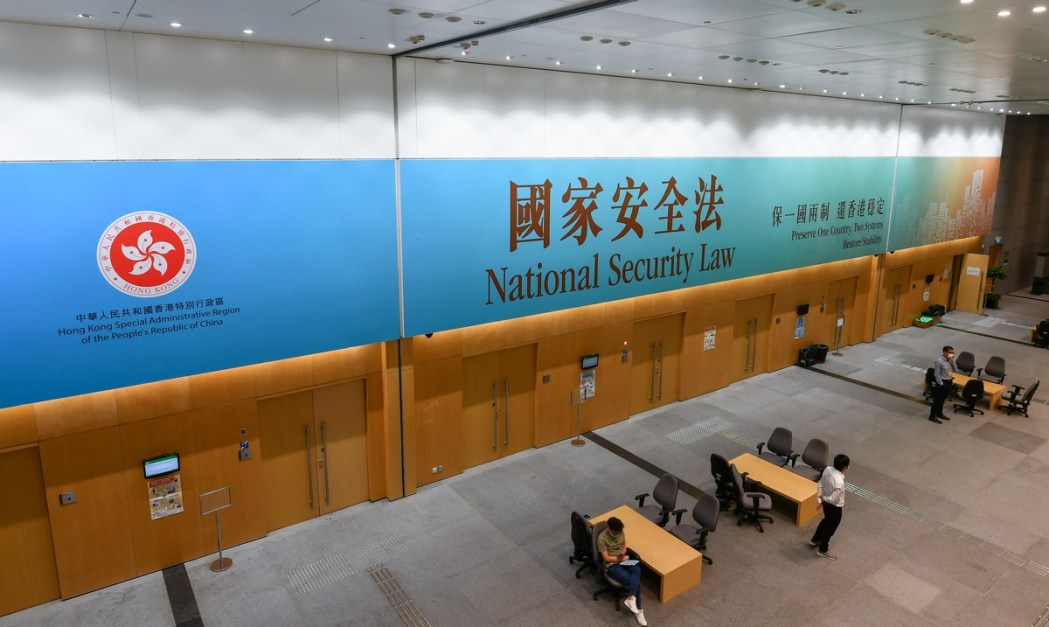Beijing has lambasted the outgoing senior US diplomat in Hong Kong after he accused the Chinese authorities of dismantling the city’s freedoms and high degree of autonomy through a “chilling” national security law and an electoral overhaul.

China’s foreign ministry office in Hong Kong issued a strongly-worded statement hitting back at a farewell speech by US Consul General Hanscom Smith, who said that Hong Kong’s institutions had suffered an “assault” from Beijing with the “broad, crude, and chilling” application of the sweeping security legislation.
The envoy, who will depart soon after completing his tenure, also pointed to China’s “wholesale abandonment of democratic processes” in its move to revamp the local electoral process last year. The authorities introduced a new national security vetting mechanism for election candidates to ensure “patriots administer Hong Kong” and sharply reduced the ratio of directly elected lawmakers.
In a statement released on Monday night, the foreign ministry office “strongly condemned” Smith’s farewell statement and said it “slandered” China’s governing policy on the city. The remarks also “defamed” the successful implementation of One Country Two Systems, it said.

“The sad ‘farewell statement’ Smith gave was a symbol of the complete bankruptcy of the US strategy of ‘containing China with Hong Kong’,” the statement said.
‘Foreign interference’
In his farewell remarks published on Monday, Smith said patriotism had become “a cudgel to drive reform-minded leaders out of Hong Kong’s professional associations,” citing the closure of independent news outlets, the detention of journalists and the arrest of politicians.
He also rejected claims by the Beijing and Hong Kong authorities that the 2019 widespread unrest was fuelled by foreign interference. Smith said what prompted Hongkongers to protest on the streets was “not a desire for independence but rather for the freedoms and autonomy they were promised.”
“Blaming ‘foreign forces’ for unrest and violence, a beloved trope of authoritarian governments, is merely the PRC leadership’s effort to shirk responsibility and pin its shortcomings on a foreign scapegoat,” Smith said.
He went on to accuse Beijing of characterising routine diplomatic activities as “interference,” with diplomats threatened with the security law for conducting what Smith described as ordinary business.
“An exchange of views is not collusion. Attending an event is not interference. A handshake is not ‘a black hand’,” the US official said.
‘Sinister intentions’
Claims of “eroded autonomy, democratic regression and suppression on human rights” were “American prejudice,” the Chinese foreign ministry said.
It said the US was disrupting Hong Kong’s prosperity and stability by ignoring objections from China and Hong Kong society and continuing to make “alarmist rants” about the city’s future.
“The sinister intentions of the US have been exposed to the fullest,” its statement said. “Smith’s conspiracy has failed… no one in Hong Kong cares anymore. There is nothing to be done, so [he] can only pick up his bag and leave. Bye, Smith!”

The Hong Kong government called Smith’s comments on the national security law unfair. In a statement, it described the Beijing-imposed legislation as putting a stop to chaos and restoring order in Hong Kong, as well as ensuring the principle of One Country, Two Systems was implemented smoothly and continuously.
“What the Hong Kong National Security Law seeks to prevent, suppress and punish are distinctly different from normal interactions. Law-abiding people will not unwittingly violate the law.”
The government also defended the China-drafted electoral overhaul passed in May 2021, saying the requirement that only “patriots” hold power was a political rule commonly practised in the world.
“No one in any country or region in the world will ever allow political power to fall into the hands of forces or individuals who do not love, or even sell out or betray, their own country.”
Support HKFP | Policies & Ethics | Error/typo? | Contact Us | Newsletter | Transparency & Annual Report | Apps
Help safeguard press freedom & keep HKFP free for all readers by supporting our team
























